(CLO) Among the 20 heads of state attending the BRICS Summit in Kazan, the international community paid special attention to the appearance of Turkish President Recep Tayyip Erdogan, a NATO member. So what factors are pushing Türkiye to increasingly move closer to BRICS and what pressure will this country face from the West?
Türkiye faces great pressure from the West
There is no denying the pressures Turkey is under today as Ankara remains significantly economically dependent, primarily on the European market. The European Union (EU) has been and remains Turkey's main trading partner.
According to Eurostat, Turkey will become the EU's fifth largest partner by 2023. 41% of Turkey's exports go to the EU. According to political analysts, one of the main factors promoting economic and trade cooperation between Turkey and EU countries is its favorable geographical location.
In addition, Türkiye is also facing great pressure from the United States. In fact, Washington does not hesitate to use economic “cards” to put pressure on Türkiye publicly. It is no coincidence that US rating agencies have not recommended US investors to cooperate with Turkey for at least 7 years. In addition, every anti-Turkish statement by the head of the White House or high-ranking officials in the US administration is accompanied by a decline in the exchange rate of the lira.
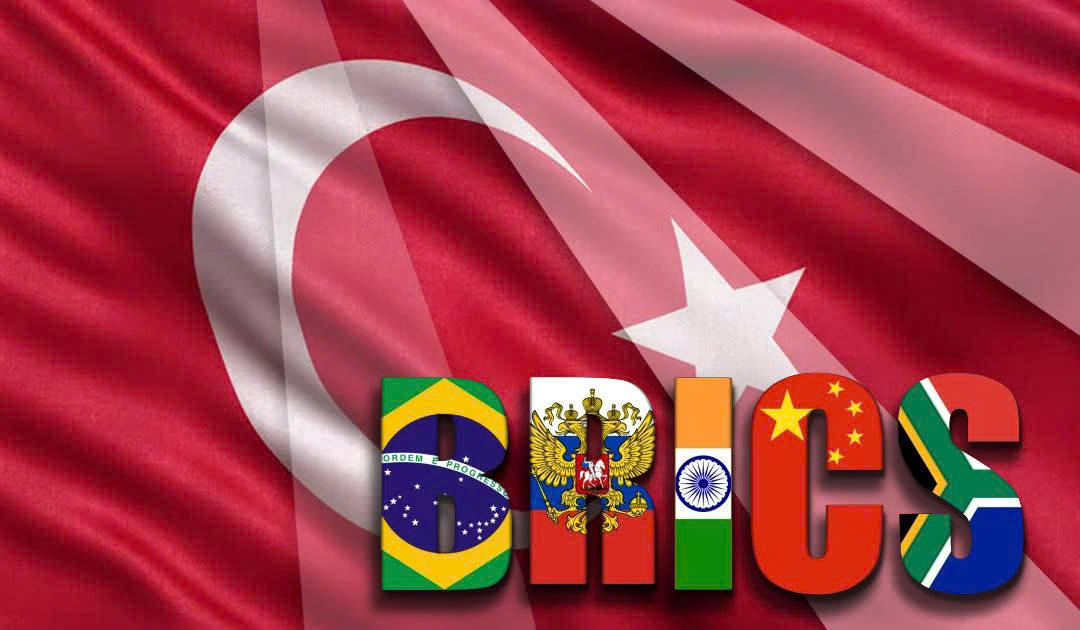
Türkiye wants to join BRICS. Photo: Reuters
In fact, the alliance between the US and Turkey has been in a state of “fake news” for some time now. Most recently, in early August 2024, the US warned that Turkey could face “consequences” if it continued to allow the export to Russia of US civilian products that could be used for military purposes .
Washington has grown increasingly concerned that the NATO member state has become a key hub through which Western-made electronics, including processors, memory cards and amplifiers, are shipped to Russia, where they are allegedly used to manufacture missiles and drones.
The driving force behind Türkiye's move towards BRICS
Türkiye's interest in BRICS is not new, dating back to 2018 when at the organization's summit, President Recep Tayyip Erdogan expressed his desire for Türkiye to become a member of this structure.
According to political analysts, Ankara's growing interest in BRIS is driven by both political and economic motives. Politically, BRICS represents a central voice for developing countries, providing the basis for a new multilateral world order with a greater role for the Global South. In other words, BRICS sees itself as a counterweight to the international order dominated by the Western bloc.
Therefore, Türkiye’s interest as a regional power in joining BRICS is consistent with its balanced and multi-dimensional foreign policy. Turkish politicians and experts believe that joining BRICS will only strengthen Türkiye’s role as a bridge between East and West, increasing its strategic importance to both sides.
For Türkiye, international cooperation organizations such as BRICS are of particular importance today, especially in the context of the unpredictable developments of the Russia-Ukraine military conflict, the instability in the Middle East, and the risk of a US-China trade war. Under these conditions, strengthening cooperation with BRICS can help Ankara cope with instability in the global system, while Türkiye can still pursue its national interests.
Another important aspect is the imbalance of existing international institutions, especially the uneven distribution of power in organizations such as the International Monetary Fund (IMF) and the World Bank. Developing economies in the BRICS have long expressed frustration with their lack of representation and limited voice in these organizations. Türkiye’s full participation in BRICS could allow it to work with other countries to push for reform of existing global institutions.
BRICS opens up many opportunities for Türkiye
Furthermore, Türkiye’s interest in BRICS fits into its proactive and flexible foreign policy, which seeks to engage more deeply in regional and international structures. For example, Turkey’s plans to join the Shanghai Cooperation Organization (SCO) or Turkey’s status as a dialogue partner of the Association of Southeast Asian Nations (ASEAN).
Economically, BRICS countries account for 40% of the world's population and 20% of its gross domestic product (GDP). After expansion in 2024, BRICS now accounts for 46% of the world's population and 31% of the global economy. Deepening cooperation and membership in BRICS will increase Türkiye's exports to member countries.
On the one hand, this helps Ankara cope with global economic uncertainty, supply chain disruptions and geopolitical tensions between major powers. On the other hand, this is important given the dominance of Western markets in Türkiye’s investment portfolio. By diversifying its trade relationships, Ankara can reduce its economic vulnerability in the long term.
In addition, strengthening relations with BRICS members can help Türkiye attract new investments, create job opportunities and ultimately expand the presence of member countries in various sectors of the Turkish economy. This is especially important as the world moves from a Western-oriented economic order to an Eastern-oriented economic order. Türkiye can easily access the New Development Bank (NDB) financing for infrastructure and renewable energy projects...
Clearly, despite pressure from Western countries, Türkiye is steadily moving closer to BRICS because of its enormous benefits, both politically and economically. Its active foreign policy, emphasizing a balanced approach between East and West, forms a solid political basis. From an economic perspective, the growing influence of BRICS countries opens up opportunities for Türkiye to deepen trade relations, access new export markets, and attract diverse sources of investment for long-term growth.
Ha Anh
Source: https://www.congluan.vn/dong-luc-thuc-day-thanh-vien-nato-tho-nhi-ky-xich-lai-gan-brics-post318639.html
















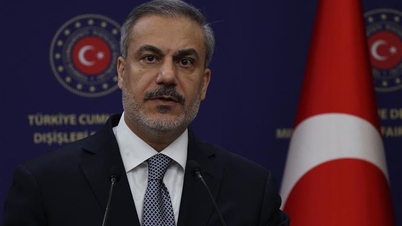


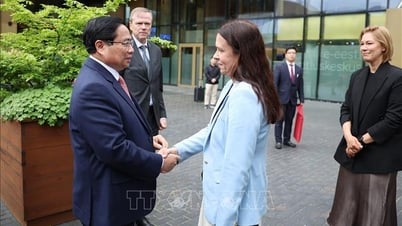



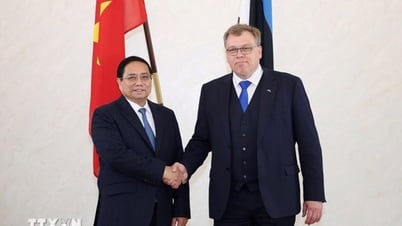














![[Photo] General Secretary To Lam receives Korean Ambassador to Vietnam](https://vphoto.vietnam.vn/thumb/1200x675/vietnam/resource/IMAGE/2025/6/6/a0765b7543784cbcbfe4755b67d43ab4)
![[Photo] President Luong Cuong works with Hung Yen and Thai Binh Provincial Party Committees on implementing Resolution of the 11th Central Conference, 13th tenure](https://vphoto.vietnam.vn/thumb/1200x675/vietnam/resource/IMAGE/2025/6/6/127b735d2761484d81dcee0d7725a25b)


























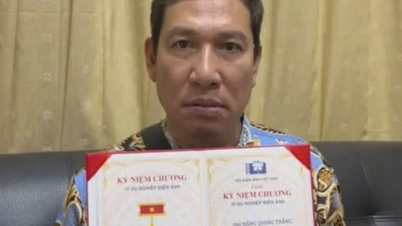


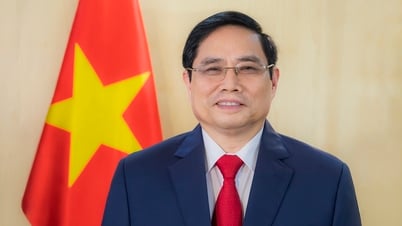






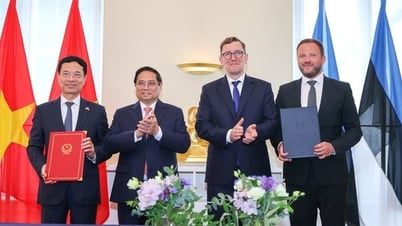




















![[OCOP REVIEW] Tu Duyen Syrup - The essence of herbs from the mountains and forests of Nhu Thanh](https://vphoto.vietnam.vn/thumb/402x226/vietnam/resource/IMAGE/2025/6/5/58ca32fce4ec44039e444fbfae7e75ec)











Comment (0)